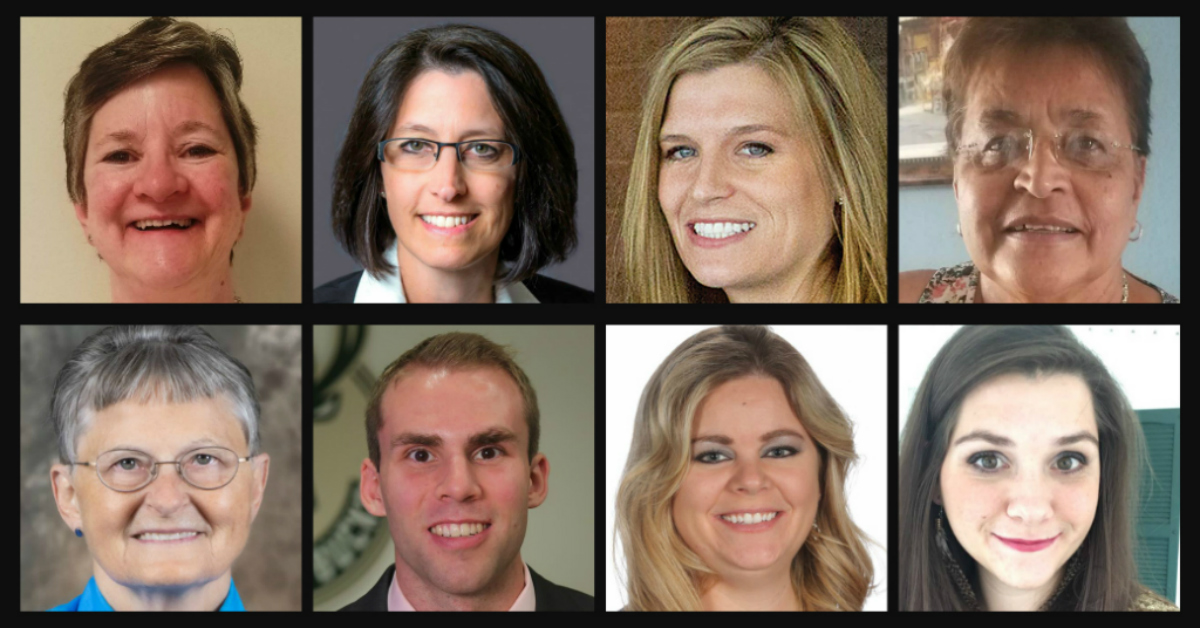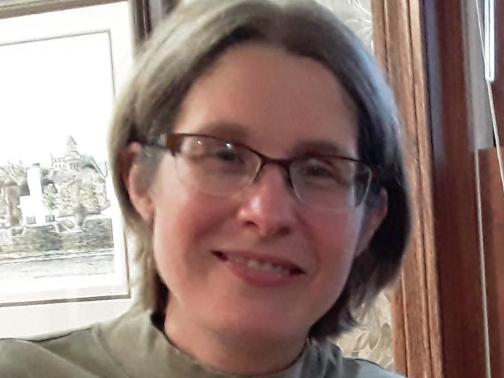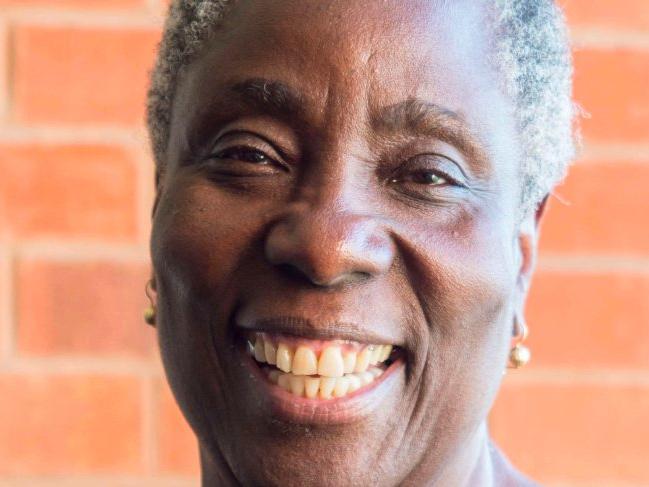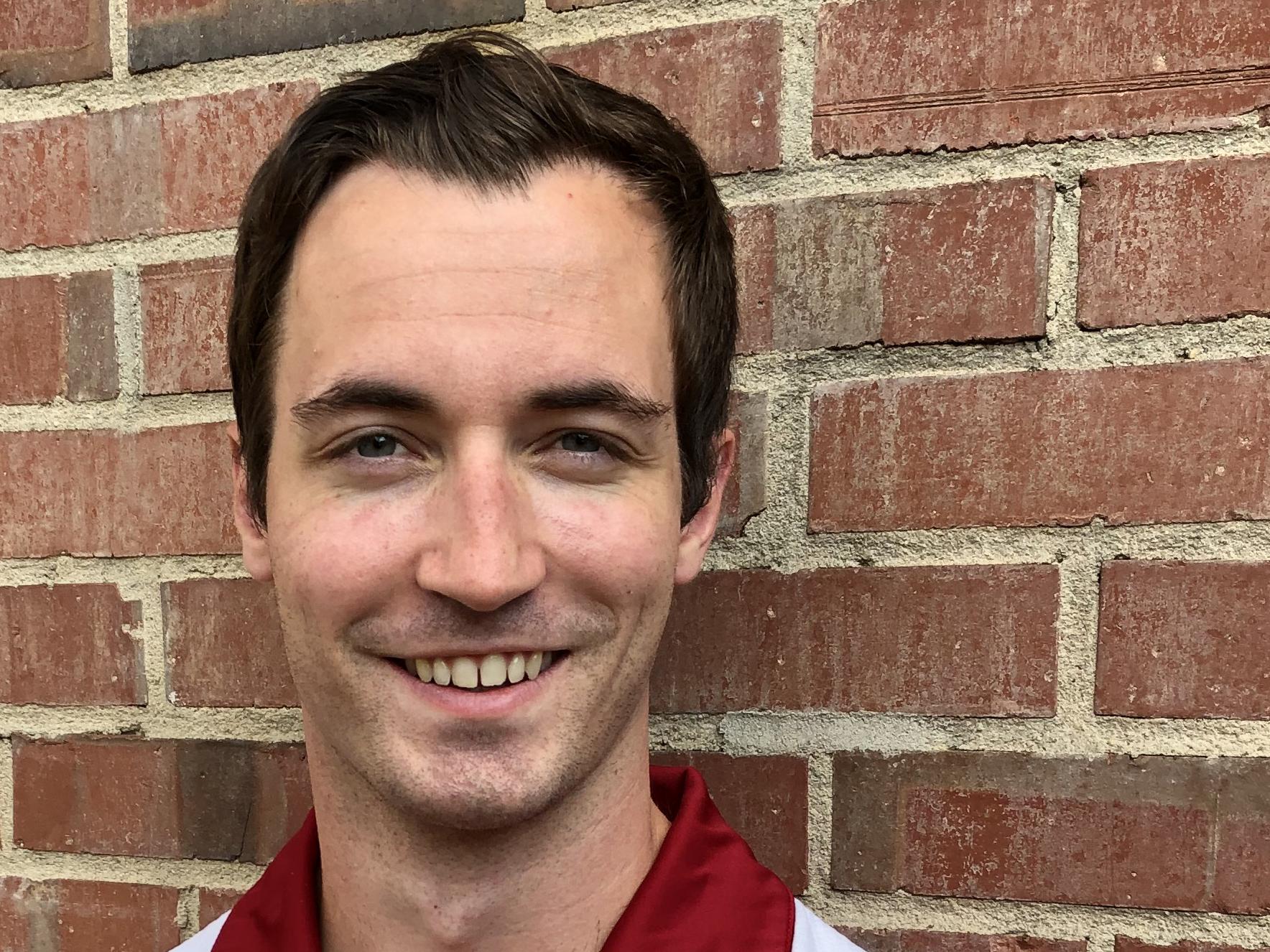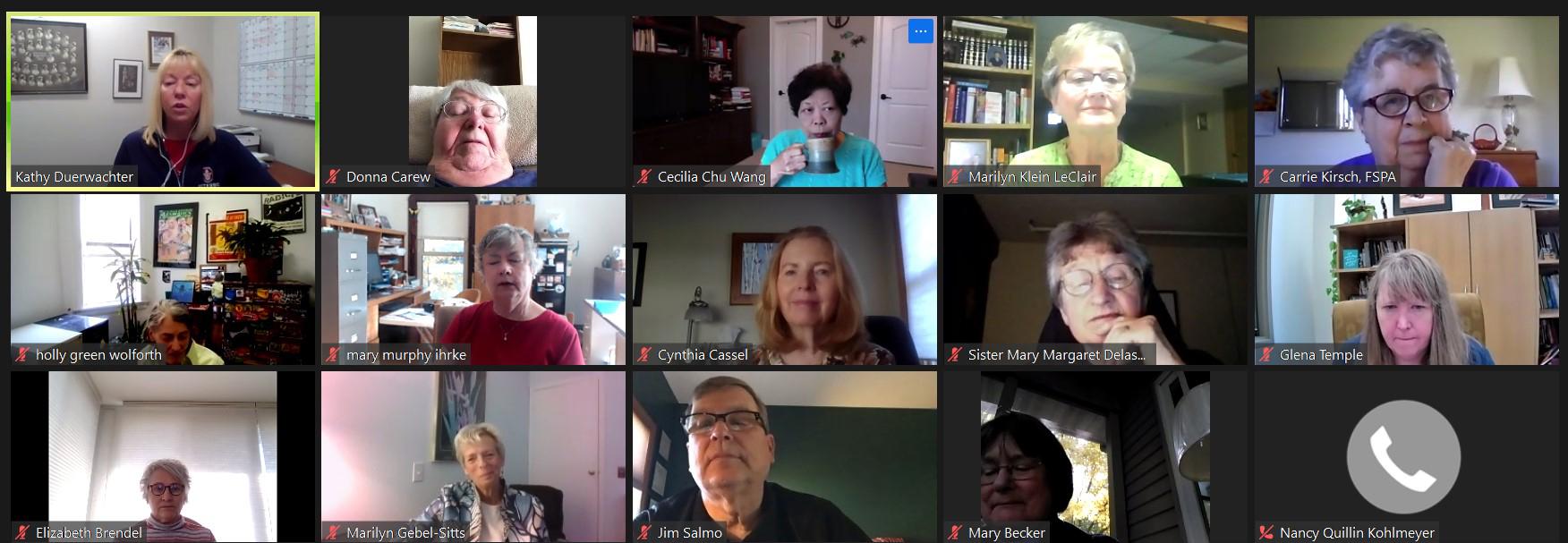
There’s something poetic about the Viterbo University Class of 1970 being the first group of Viterbo graduates to conduct a 50-year reunion in cyberspace. The women who graduated half a century ago saw a number of Viterbo firsts while they were on campus.
By spring of 1970, work was nearing completion on Viterbo’s Fine Arts Center, the first new building built on the Viterbo campus since Murphy Center was constructed 30 years earlier. It was a little jarring to think that a building that was brand new when they graduated from college had seen major renovations completed last year.
“It kind of shakes you up when you think of it needing upgrades,” said Mary (Lebanowsky) Becker during a two-hour virtual reunion Oct. 10 as part of the Viterbo Days alumni weekend.
The year, members of the Class of 1970 first came to campus was the first year Viterbo had lay people as faculty. After a turbulent year of student-initiated rallies and protests during the 1968-69 school year, the following year saw a new form of student government and a revived sense of positivity.
The women who graduated in 1970 were the first students to live in Marian Hall North, and they saw the dawn of athletics programs on campus with the birth of the Sporting Club. Linda Price, a 1970 graduate, spearheaded the effort. In addition to organized volleyball and basketball, Sporting Club activities also included horseback riding lessons and a judo team, both led by Price, who at the time was one of only four women in the world who held a black belt in judo, according to the 1970 Viterbo yearbook, which was another first.
The Class of 1970 were last in one respect. It was the last group of Viterbo graduates to complete their education with a college president who was a member of the Franciscan Sisters of Perpetual Adoration, the order that founded Viterbo. It should be noted that the current president, Glena Temple, is an FSPA affiliate.
Temple, along with 15 alumnae, took part in the reunion, which normally sees the university giving “Golden Girls” the royal treatment on campus. She noted that the Class of 1970 is the second to last graduating class to have all female members. At the time they graduated, three men were enrolled at Viterbo, and the first men graduated in 1972.
In keeping with Viterbo’s roots as a teacher training college for FSPA members, 55 of 1970’s 85 graduates majored in education. Laywomen made up a majority of the class of 1970, but there were 18 Sisters in that class, two of whom took part in the reunion: Carrie Kirsch, FSPA, and Mary Margaret Delaski, FSE.
After graduating from Viterbo, Sr. Delaski went into music therapy and now is the mother superior in a Franciscan Sisters of the Eucharist cloister in Michigan. During the reunion event, she was among many reunion participants who expressed admiration and appreciation for the FSPA members who guided them though their college education. “We had a stellar education,” Sr. Delaski said.
An education major, Sr. Kirsch concurred with Sr. Delaski. “We had some wonderful Sisters who were teachers back then,” said Kirsch, who has been an active alumni board member. “I think they all helped us become who we are.”
Elizabeth (Meehan) Brendel, who was a community educator for University of Wisconsin-Extension before working her last years before retirement at Viterbo, also praised the FSPA instructors. “They had a great impact. You couldn’t find better educators,” she said. “I got a Big 10 education at a small Christian college.”
One thing about the Sisters: you didn’t want to disappoint them. “One of my strongest memories from Viterbo is the fear I felt getting back late into Marian Hall when Sister Anna Glum was at the desk.”
Like many 1970 graduates, Mary (Murphy) Ihrke was the first in her family to go to college. While she didn’t have enthusiastic backing from her parents, she felt at home on campus from day one. “I remember Sister Ladonna greeting us the first day and greeting me by name. As soon as we walked in the door she knew my name,” Ihrke recalled.
The Sisters would study photographs of the incoming first-year students ahead of their arrival so they would be recognized and welcomed personally, in a manner consistent with Franciscan emphasis on hospitality. “There was a very personal touch throughout,” Ihrke said.
Cecilia Chu Wang, retired from teaching at the University of Kentucky, came to Viterbo from Hong Kong, and she recalled that while she was good at reading English, it took her two months to really be able to understand what her teachers were saying. “Everything was new to me, but I felt very safe because all the Sisters were so kind and took care of everybody,” Wang said.
Back then, students from abroad were referred to as “foreign students,” a less welcoming phrase than the current “international students,” but Wang felt very welcome most of the time. One possible exception was when she would cook Chinese dishes in the dorm. “The other girls would go away because they didn’t like the smell,” she said with a laugh.
Several reunion participants talked about having vivid memories of using the tunnel to go from Murphy Center to St. Rose Convent, where some classes were still offered. Patricia (Rickert) Bacon recalled one tunnel trip in particular, memorable because when she emerged from the tunnel in the convent, she was surprised to encounter a deceased FSPA member in a casket.
“I enjoyed my time at Viterbo and have very fond memories,” said Bacon, who came up with the name of the Viterbo yearbook (Cameo) from a poem by Helen Lowrie Marshall called “My Cameos of Memory.”
Reunion host Kathy Duerwachter, Viterbo’s director of alumni engagement, shared a digital version of the yearbook with reunion participants. The yearbook includes the poem from which the yearbook gets its name, and the first verse seemed particularly poignant as the reunion came to a close:
These are my treasures kept apart,
Cradled in velvet in my heart,
Graven profiles, picture-clear,
Perfect moments, priceless-dear,
Etched in ageless time to be,
My cameos of memory.

